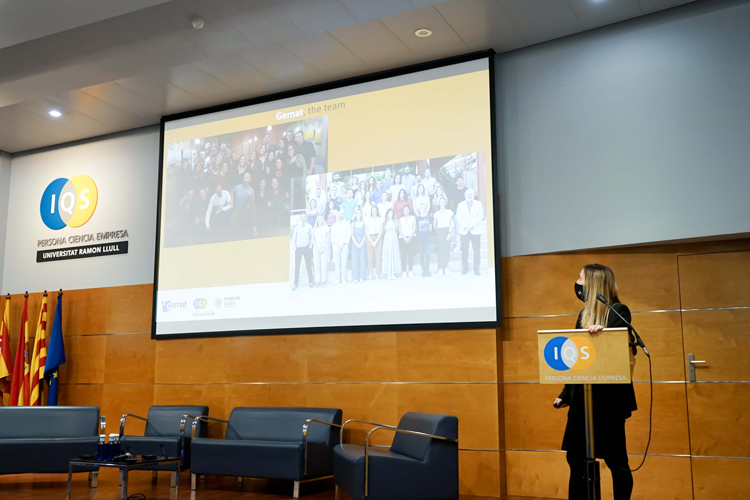Addressing current problems and concerns about the increase of microplastics in nature is not an easy task. With this is mind, IQS presented the lecture “Microplastics: limits to their uses and solutions based on nanotechnology” in which companies, governmental entities, and the university could discuss aspects related to “a three-tier relationship integrated into IQS’s DNA” .

Addressing current problems and concerns about the increase of microplastics in nature is not an easy task. With this is mind, IQS presented the lecture "Microplastics: limits to their uses and solutions based on nanotechnology" in which companies, governmental entities, and the university could discuss aspects related to "a three-tier relationship integrated into IQS's DNA" that was highlighted by Director of IQS Tech Transfer Dr Núria Vallmitjana in her welcome address to the attendees
Car tyres and road pavement are the leading causes of the presence of microplastics in the ocean, noted Xavier Closa, Head of Local R&D Laundry & Home Care with Henkel Ibérica, based on a study carried out by the European Commission. In addition, Closa presented the solutions proposed by Henkel to guarantee the replacement of the plastics used in microspheres in products such as laundry detergent and softener through biodegradable polymers.
Albert Puigpinós, from the R&D department at the company Carinsa, detailed the evolution of microencapsulation within their company that manufactures aromas and fragrances through its encapsulation technological platform, with redesigns of its innovation strategy and technologies based on artificial intelligence and 3D printing.
Marta Gallegos, representing the Ministry of Ecological Transition and Demographic Challenges, painted a picture of the legislative aspects of the new Spanish Law on Waste and Contaminated Soils for a circular economy, which prohibits the use of primary microplastics that are "intentionally" added during the manufacture of products related to cosmetics and cleaning products. She also highlighted the current situation and the scope of the new law by sectors, as well as the initiatives, forming part of the REACH strategy, for open consultation on issues affecting restrictions on primary microplastics that could ensure harmonised implementation rules across all EU countries.
IQS solutions for industrial problems
Regarding encapsulation and how IQS addresses current industrial issues, the presentation "Innovation through design in the field of encapsulation" was led by Dr Cristina Fornaguera, professor and researcher with the Materials Engineering Group (GEMAT), who explained that encapsulation is a widely-used technology in the preparation of drugs and cosmetic products, among other applications. The GEMAT group has developed two different encapsulation technologies that enable controlling the materials, are scalable, and are easily applicable in the industry. The first is focused on the use of polymeric nanoparticles, based on biocomposites with different functionalisations and which can be lyophilised.
The second technology involves lipid nanoparticles based on natural extracellular vesicles that can also be lyophilised to avoid degradation problems. Dr Fornaguera showed examples of how both technologies are applied, showcasing them as the "next generation of encapsulated materials."
The day came to a close with the roundtable session "Challenges and opportunities in the use of nanotechnology," moderated by Dr Salvador Borrós, Director of IQS and Coordinator of the GEMAT group, in which all speakers participated. The leading topics that emerged during the discussion included the social perception of changes and challenges, the limits that consumers are willing to accept, the transformations of consumption patterns, marketing, consumer perception, and required technological investments.










